You are registered for Dharma of Resistance! Course Resources are available now.
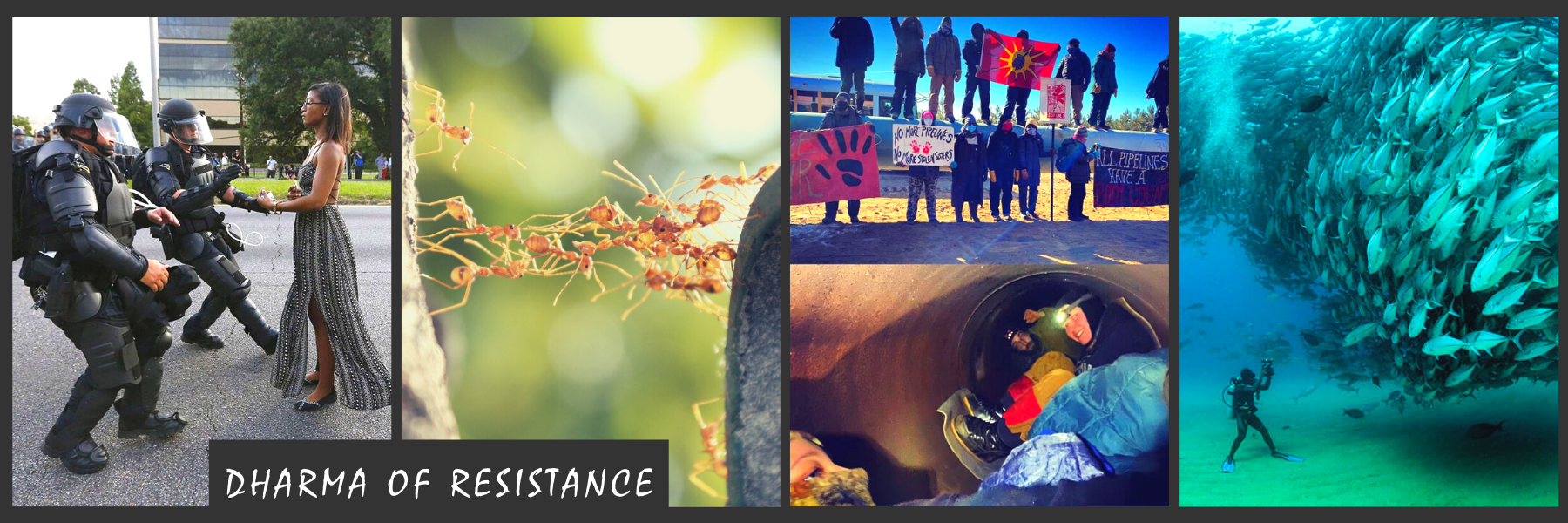
As part of our new Virtual EcoDharma Center, One Earth Sangha is honored host this course, developed and taught by Boundless in Motion and collaborators.
Overview
Can we take inconvenient and risky actions necessary to minimize suffering on our planet? How might taking such actions become more normal, healing, holistic and beautiful? Can these actions authentically and skillfully express of our deepest spiritual truths?
In Dharma of Resistance we will investigate these questions and give participants tools and frameworks to create conditions for healing trust, spiritual power, and accountability to emerge between team members. The participants will develop a better understanding of principles and tactics of Social Permaculture and Gandhian-Kingian Nonviolence for engaging with resistance, conflict, risk, and power. Please read the longer description and ‘What is new in this course‘ for details.
This new two-phase course will include a total of 15 formal classes. It has been developed and will be taught by a team that includes Buddhist Zen priest and climate scientist Kritee (Kanko), Social permaculture teachers Naveed Heydari, Adam Brock, Drew Hornbein and Caroline Savory as well as Nonviolent direct action trainers Aidan Kankyoku and Razz Gormley. More about the teaching team here.
All formal sessions will be online on Saturdays from 10 am to 12 noon MDT (9-11 am PDT, 12 noon -2 pm EDT).
- Phase 1: May 15, May 29, June 12, June 26, July 10, July 24
- Phase 2: Aug 7, Aug 14, Aug 28, Sept 4, Sept 18, Sept 25, Oct 9, Oct 16, Oct 30
During the intervening periods between the formal “class weeks”, participants will be asked to meet in small groups of 5-7 people called minipods to build “relational soil” and to complete discussion of homework readings and assignments.
Your individual application for this course will not be evaluated unless between two to six trusted individuals whom you already are in relationship with also apply for this course. As long as the primary conveners have a Buddhist affiliation, your team could come from your Sangha, colleagues, community, family, or friends from any climate and/or social justice movement spaces. Each team member will need to apply and register individually.
The cost of this course for individuals will be on a needs-based sliding scale from $12 to $120 per class (a total of $180 to $1800 for the two phases). More about cost structure below.
This course is ideal for small teams who understand the scale of the climate emergency and social inequities before us, are ready for the discomfort and vulnerability of sharing some of our truths with others, yearn for more holistic movement spaces, wish to learn more about direct action from Buddhist, Nonviolence and Permaculture perspectives, and can devote significant time over next few months to successfully finish the requirements of this course. More about ideal participants below.
The overall goal of this course is to spiritually, psychologically, culturally and strategically prepare participants to take direct actions in teams within the larger framing of three pillars of Ecodharma and Gandhian Iceberg. More about the goals of the two phases below.
You can read more detail about the course below, check our responses to frequently asked questions or skip to the application.
Applications for Dharma of Resistance are now closed. Please visit One Earth Sangha’s homepage or Boundless in Motion to explore other offerings.
Description
Collective nonviolent resistance is essential to cultivate to tackle the 21st century challenges of environmental and social justice and it should arise out of a heart of love and compassion. Buddhists across the world aspire to protect all beings from harm and we understand that a lot of harm is being perpetuated by the ongoing climate crisis and the underlying socio-economic systems. In the next few decades, a deepening climate crisis can bring catastrophic harm to many more species, ecosystems and life-enabling planetary processes unless all of us step out of the status quo at both individual and systemic levels. To avoid catastrophic chaos at the global scale, to protect beloved lands and people around us, and to stand in solidarity with the most vulnerable beings, at least a small percentage of us will need to compassionately, wisely and strategically speak our truth in public against the wishes of the very powerful corporate interests (e.g., fossil fuel industry) and take “risky” actions within the next few years. The animating questions for this online course, which is an exploration at the intersection of personal healing and political transformation, are:How will we match our individual capacities and actions to what the climate and justice movements needs? Can we take “inconvenient and risky” actions necessary to reduce suffering of all beings? How might these actions become more accessible, satisfying, healing and beautiful? Can they authentically express our deepest spiritual truths?The teachers of this course believe that one individual cannot change a system and we need a regenerative life-giving system to confront the oppressive status-quo system. We also believe that the birthplace of regenerative systems is spiritual friendships. We can use the power of trusting relationships to step into the discomfort necessary to say a sacred NO and stop status-quo forces from causing further suffering, and to unleash the creativity necessary to say a sacred YES and birth positive solutions for meeting our food, housing, psycho-spiritual, intellectual, creative and financial needs. This course will give practicing Buddhists (and their friends) tools and frameworks to:
- create conditions for healing trust, spiritual power and accountability to emerge between team members such that they can collectively step into their uncomfortable growth edges and take radical actions and
- understand Gandhian-Kingian Nonviolence philosophy and tactics of dealing with conflict, risk and power in individual, team and social groups as well as political lives and how this philosophy overlaps with teachings from Buddhism and the patterns in the natural world.
What is new in this course?
From a Buddhist perspective
Buddha worked to eradicate human suffering by teaching individuals how to get in touch with that part of the human consciousness where there is no ego, no self and no resistance. His ultimate teaching lies in how to observe Shunyata, the source of consciousness itself. Because of his deep intimacy with Shunyata, Buddha also taught his followers a moral code rooted in compassion. Nevertheless, he lived before organized frameworks and constructs about the condition of the human collective or the systems of oppression existed. Buddha understood every community’s well being to be dependent on the state of mind and actions of involved individuals in the context of simple relationships. Early discourses by Buddha show that he did not support the caste system, and he encouraged rulers to not resort to wars and work to reduce poverty; but he did not speak about actively resisting the socio-economic systems that existed at the time (e.g., the caste system and monarchies). Over time, acknowledgement of these systems and/or power of consent started appearing in Buddhist scriptures.In the 21st century, many engaged Buddhists and communities have been experimenting with how to confront harmful systems to build our collective power. And yet, most Buddhists still conceptualize their commitment to peace and nonviolence in moral terms. What we need is both a more healing approach that composts traumas of the 21st century and a more strategic approach that views Nonviolence as a weapon to be wielded with careful organizing rather than merely as a moral ideal. In the US, at this time, we need to do the cultural preparation that is necessary to increase our society’s capacity for mobilization. This course will use the wisdom of multiple ancient and contemporary traditions e.g., neurobiological science on trauma healing, lessons from natural systems, ancient spiritual teachings including of Buddhism, and modern understanding of strategy and tactics to help build a culture of nonviolent resistance that is wholesome and beautiful.Although people unfailingly have the desire to form a nation and to find a wise ruler, few of them fully understand the reason why a wise ruler is a wise ruler. They are glad simply to be accepted by the ruler. But they never recognize that they themselves do accept and support the ruler.
From a social permaculture perspective
“Social permaculture” teaches how to engage in the design of organizations and social dynamics using a living systems lens and using some of the same practices, thinking and methods as land-based permaculture. As modern humans, we tend to forget that human beings and our social systems are an extension of living systems, and reflect some of the very same patterning. Social permaculture practice is relevant for direct action organizers in a few ways:- the work of forming resilient, trusting, thriving affinity groups that have the power and joy necessary to prepare, implement and deal with the aftermath of direct actions
- understanding how communication, conflict, social power, and “bad patterning” can be processed as design challenges from the framework of seeing human systems as living systems
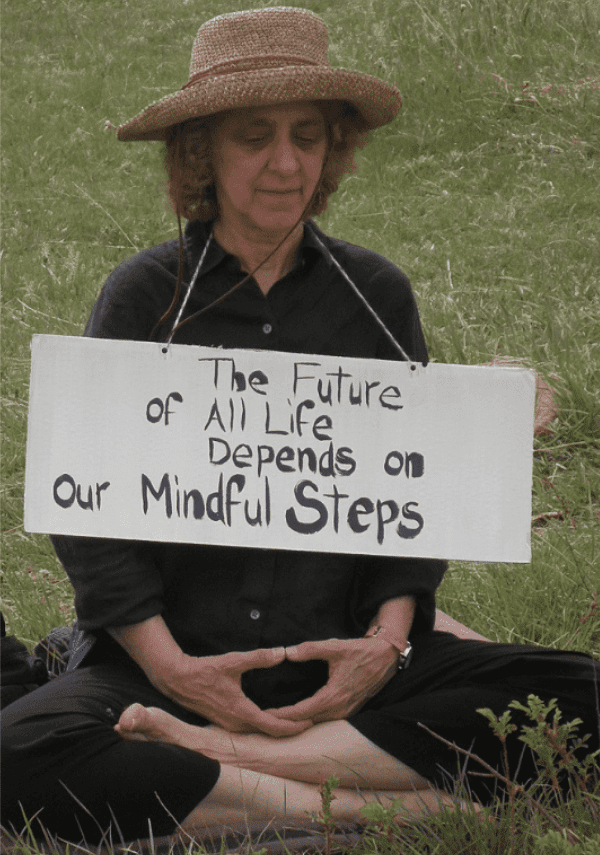
From a Kingian/Gandhian Nonviolence perspective
Social movements are too often caught between a false choice: on one hand, non-confrontational tactics which do not directly challenge the status quo are insufficient for the scale of crises we currently face. On the other hand, many activists seeking more direct action tactics resort to physical destruction and emotional aggression towards people who are often themselves victims of existing power systems because of their trauma and shame. This severs the movement’s connection to the broader society and is used to justify harsh crackdowns of the state sanctioned violence and repression towards activists. There is a third way which is neither accommodating nor destructive: the tradition of Nonviolent civil resistance, which wends through Gandhi’s Nonviolent revolution in India, Martin Luther King, Jr. and the U.S. civil rights movement, and countless other transformational social movements. Nonviolence synthesizes the disciplined engagement of militancy with pacifism’s unwavering commitment to protecting life. Yet many changemakers today still do not understand the meaning and power of Nonviolent resistance. Additionally, as parts of the climate and justice movements, we are very new to grappling with the scale of individual, familiar, racial, economic and climate trauma we have around us. This course will be an exploration of how to make our authenticity, vulnerability and grief in the context of our friendships our superpower.From a climate perspective
The average footprint of a person living in the US is equivalent to 45,000 lbs of carbon dioxide per year and it needs to come down to 5000 lbs within the next ten years for us to keep global temperature rise to below 1.5 degree celsius (something necessary to avoid climate catastrophe). This change from 45,000 to 5,000 lbs will not be possible without our collective efforts at the systemic level and without us saying a sacred NO to powerful interests that make profit from extracting and burning fossil fuels (See a talk that explains these science based numbers). Governments, policymakers or entrepreneurs can much more easily enact/implement necessary laws and policies when the public is spiritually, psychologically and culturally ready for a change. This course will explore how we can bring the spiritual power of our relationships to the frontlines of climate resistance and water/land protection.From a social justice perspective
Racism and colonialism are among the root cultural causes of climate crisis and the poor people of color all over the world suffer the most because of climate crisis. And yet, changemakers working on racial justice and healing have repeatedly pointed out that the mainstream climate movement in the US (and abroad) fails to integrate and collaborate with Black Indigenous and other people of color (BIPOC) leadership in the US and the global south. When the climate movement does engage with communities of color, it is often done in a manner that is tokenizing, exploitive and rooted in white saviorism. We can build a climate movement that embodies social justice values and catalyzes racial healing. We can build a social justice movement that acknowledges another harsh truth: the truth of climate emergency and the genocide it promises to bring. We can design for interactions that cultivate relationships and celebrate our differences as a path toward a greater collective strength through unity and right relationships. In this course, we will explore how we might be able to achieve individual healing, social justice and radical climate action through one elegant framework.From a strategic direct action perspective
Nonviolent resistance can be our most powerful tool for growing movements, winning hearts and minds to our causes, standing against injustice and creating the changes that we want to see in the world. Many courses explore the theory and philosophy of nonviolent resistance, but fail to address the more practical and strategic elements of this valuable tactic. This often leads to participants feeling excited and willing to engage, but unprepared to confront the unique challenges and risks inherent to this work–which can lead to fear, inertia and despair. This course takes a holistic approach that will not only prepare you emotionally and spiritually, but also provide you with the practical knowledge and foundational skills that are critical for mitigating risk and planning or participating in direct actions, safely and effectively.Goals
The overall goal for the course is to spiritually, psychologically, culturally and strategically prepare participants to take direct actions in teams within the larger framing of three pillars of Ecodharma.
Goals of Phase 1
The six sessions between May and July will focus on personal and small-group dynamics (Social Permaculture Zones 0-2)
- Learn how to tend to the “relational soil” within our team.
- Understand the scale of personal and ecological trauma and importance of choosing vulnerability. Share our truths in a way that increases our personal and collective spiritual power.
- Learn to handle conflict and feedback in a team and use it as an opportunity for personal growth and deeper connection.
- Realize our individual needs and vocation (personal calling) in the context of our team’s goal to be involved in the climate resistance movement
- Define emergence and learn to embrace what emerges. Integrate relational soil work with principles of Gandhian/Kingian Nonviolence.
- Workshop ways that we can reorganize and reimagine our life, financially and otherwise, to make space for radical actions.
Goals of Phase 2
The nine sessions between July and September will focus on resistance, conflict, and power in our socio-political lives (Social permaculture zones 3-5).
- Learn to see conflict as beautiful, natural, and necessary as an opportunity for creative change.
- Know the organizing principles of permaculture and look at patterns for resistance, conflict, power/privilege, risk and decision-making in nature.
- Reimagine our relationship with money and financial security to create the space in our lives necessary to take more radical actions to protect beloved lands, water and species.
- Understand your area’s movement ecology: the diverse theories of change which make up a healthy social movement, including the three pillars of Ecodharma, the Gandhian iceberg, and the role of resistance (direct action) in this ecology.
- Survey the philosophical and practical history of Nonviolent resistance, going back to early Buddhist literature, through Gandhi’s revolution in India and the U.S. civil rights movement, and up to today.
- Understand the connections between individual trauma, harmful status-quo patterns (e.g. racism, hetero-patriarchy), and toxic power dynamics within social movement groups. Learn to compost all of these to create safe, productive environments for social change work.
- Identify the structural causes of dysfunction in social movement organizations, and learn skills and strategies to make teams and organizations more effective.
- Recognize the importance of multi-solving: How can we design for solutions that cut to the root of our apparently multiple problems e.g., designing climate actions such that they lead to trauma healing in individuals and communities
- Learn the strategies and tactics of direct action movements, and explore how to reimagine them through the lens of Dharma.
Course Leaders
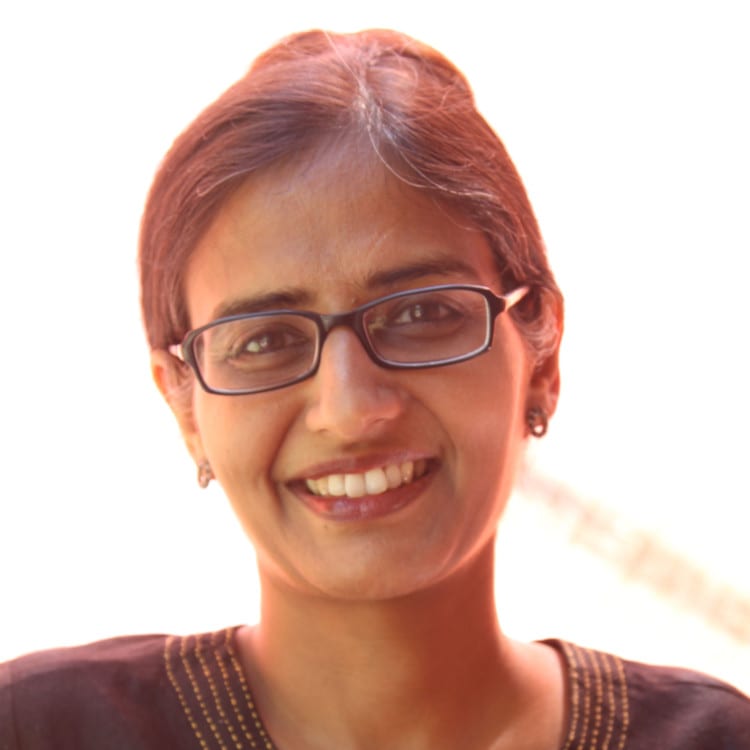
Kritee (dharma name Kanko) (she/her) is a priest in the Zen Buddhist lineage of Cold Mountain, a founding dharma teacher of Boundless in Motion and a co-founder of Rocky Mountain Ecodharma Retreat Center. Trained as a microbiologist and biogeochemist, she now serves as a senior scientist in the Climate Program at Environmental Defense Fund to implement climate-smart farming at scale in India. She loves teaching at the interface of spirituality and ecology and has served as a faculty for many organizations including One Earth Sangha, Earth-Love-Go (Lama Foundation) and Shogaku Zen Institute. Kritee also regularly lectures on the inseparability of climate and racial justice at national and international forums including the World Council of Churches. Her articles and interviews have appeared in New York Times, Tricycle, Lion’s Roar, Buddhadharma, Tikkun, public radio and other Buddhist and climate advocacy outlets. She brings perspectives and experience of many friends from the Yet-to-be-named Network to this course.
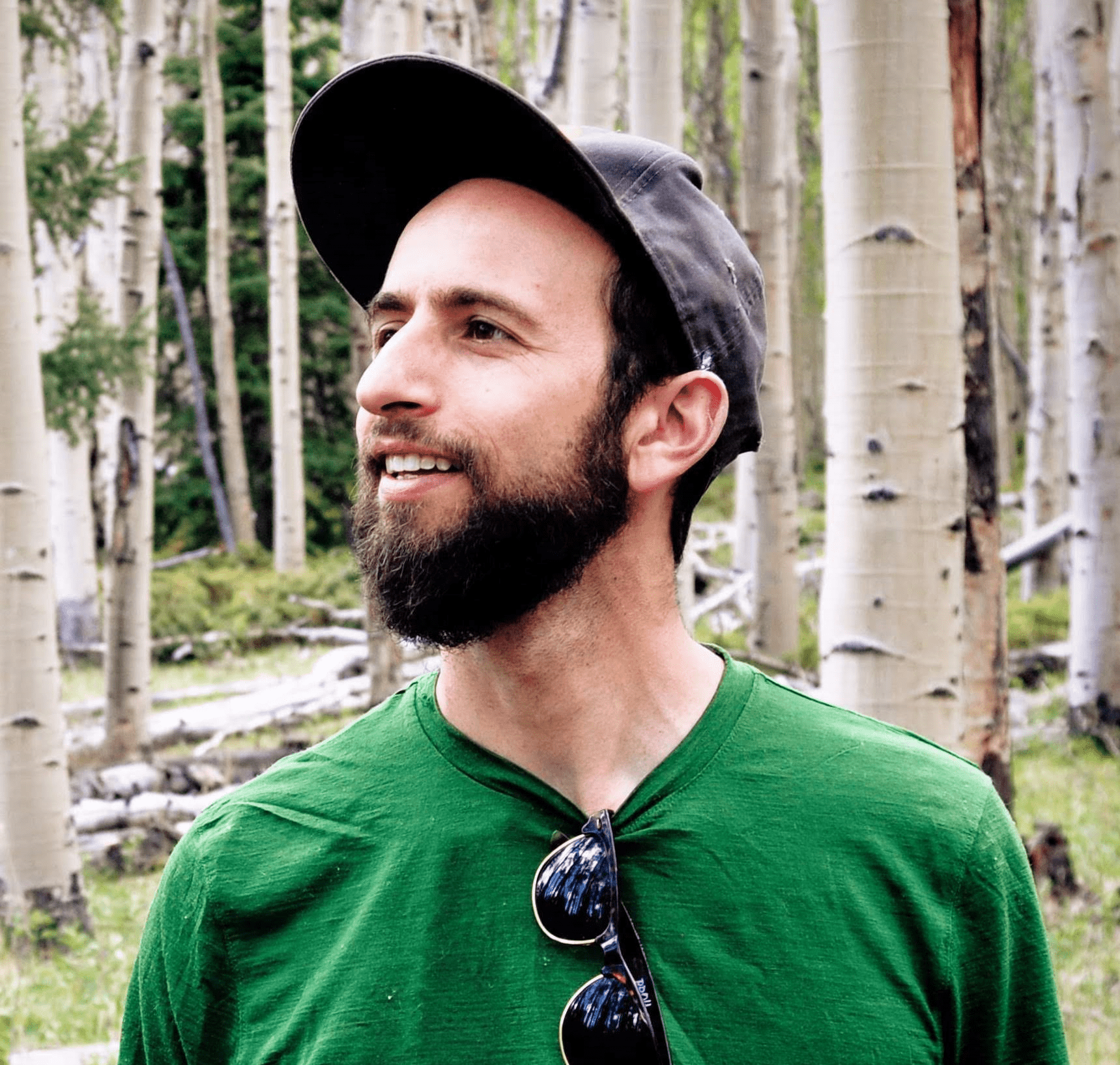
Adam (he/him) is a Denver-based cultural artist practicing regenerative social design. For over a decade, he has worked to create the conditions for regenerative relationships among individuals, grassroots initiatives, and institutions throughout the country. As co-founder of food justice nonprofit The GrowHaus, Adam led the transformation of an abandoned half-acre greenhouse into an award-winning hub for healthy food and urban agriculture. While at GrowHaus, Adam co-chaired Denver’s Sustainable Food Policy Council, spoke at TEDxMileHigh, and was named one of “Colorado’s Top Thinkers” by the Denver Post. A trained permaculture designer since 2008, Adam has led over a dozen Permaculture Design Courses and is a national leader in the field of social permaculture. In 2017, Adam published Change Here Now: Permaculture Strategies for Personal And Community Transformation, a recipe book for social change inspired by the more-than-human world. Since 2019, Adam has served as co-director at Regenerate Change, a national consulting and education group focused on regenerative social design.
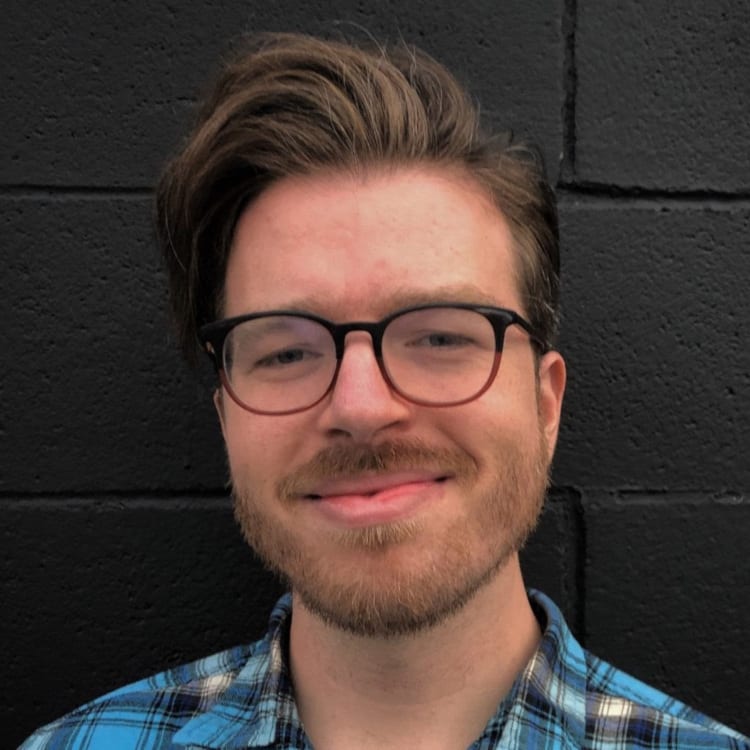
Drew (he/him) is an activist entrepreneur who believes that by remembering more equitable, democratic ways of working together we can solve the crisis of our time. He has worked within activist movements (e.g., Occupy Wall Street), mutual aid groups responding to disaster (including during New York’s recovery from Hurricane Sandy and as cofounder of Rocky Mountain Mutual Aid Network that came into being in Colorado at the beginning of COVID-19 pandemic), income-sharing communes, radical self-directed K-12 schools, cooperatives, and non-profits as a participant, facilitator, and technologist. Drew is a self-taught programmer and recovering atheist turned aspiring mystic who actively tries to listen to the more-than-human world.
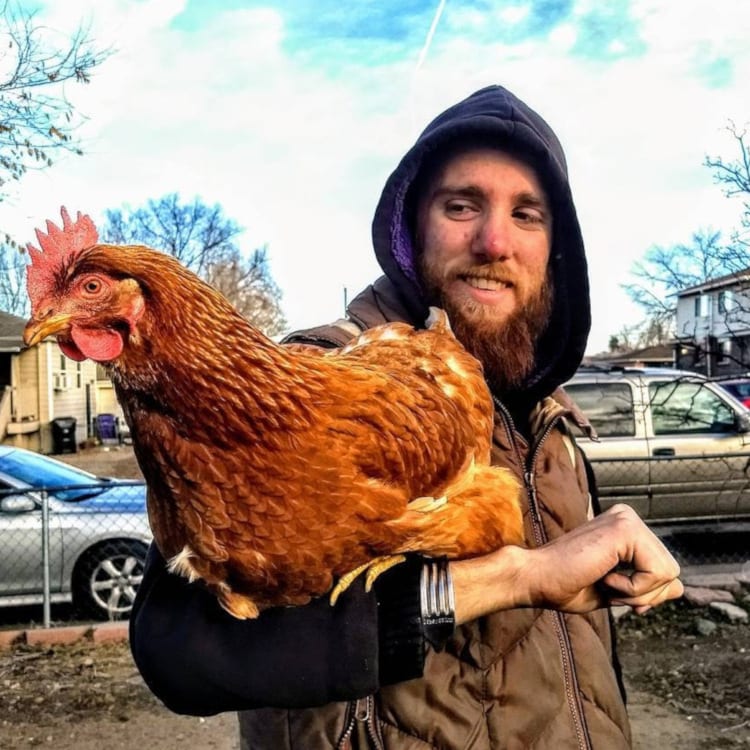
Aidan (they/them) is a Buddhist practitioner, Kingian Nonviolence trainer, and co-founder of Pax Fauna, a project to design a new grand strategy for the animal freedom movement. They are lay ordained in the lineage of Cold Mountain Zen. Since getting their start as a community organizer with Direct Action Everywhere in 2015, they have been immersed in studying the craft of disruptive mass movements and have been arrested and jailed for direct actions many times. While Aidan’s own work focuses on ending animal agriculture, they have gained a broad perspective on mass movement building through hands-on experience at the Standing Rock #NoDAPL protests in South Dakota, with Extinction Rebellion in London and elsewhere. After receiving certification from the East Point Peace Academy in 2017, Aidan has taught the Kingian curriculum based on Martin Luther King, Jr.’s philosophy of Nonviolence to encourage activist communities to attend to their inner healing and spiritual communities to take a more active role in socio-political change.
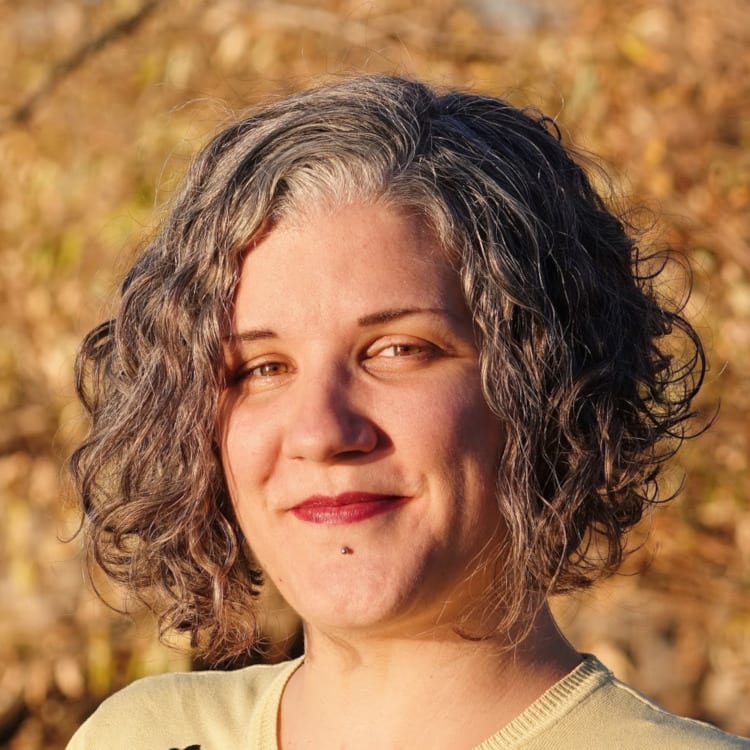
Caroline (She/her) is a long-time community organizer, educator and facilitator based in Denver, Colorado. She has been on the Buddhist path since 2010 and received refuge vows in 2013 from Acharya Adam Lobel at the Shambhala Center of Pittsburgh, receiving the name Jigme Yudron (“fearless turquoise flame”). She has helped co-found and develop numerous co-op and not-for-profit organizations, including Walk2Connect, Westwood Food Cooperative, Colorado Solidarity Fund, Denver Learning Pods Collaborative, and Denver Permaculture Guild. For the past five years she has been engaged with local community creators in developing curriculum, praxis, and courses in the theme of “social permaculture”—the application of permaculture thinking and processes in social and organizational systems.
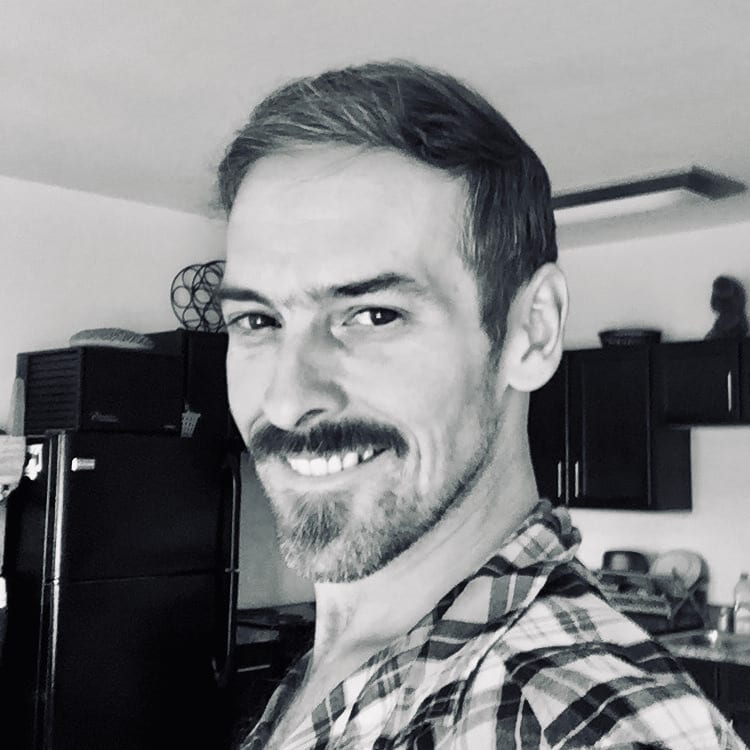
Razz Gormley (he/him) is a committed organizer, activist and educator who has been active in championing and executing nonviolent direct actions from the local to the international scale. Razz has trained and supported activists in Nonviolent Direct Action for a number of organizations, coalitions and campaigns from 350.org, Extinction Rebellion, Break Free & Keep it in the Ground to many local groups in support of all manner of justice work. He is currently working in solidarity with Indigenous leaders on the frontlines of the efforts to stop construction of the Line 3 tar sands pipeline. In many ways Razz’s devotion to peaceful resistance work is borne of personal trauma. His exploration of yoga and self-inquiry began as a tool for survival and healing. It became a catalyst for the purification and transformation necessary to recognize and align himself with his deepest principles, to stand against injustice and to bring his truth into the world.
Naveed (he/they) creates relational contexts in which regeneration is the norm. They identify in the spaces in between with regards to sexual identity (queer), culture (Ecuadorean, Persian, American), spiritual orientation, and profession. He is a master revealer, and uses this superpower to open a field in which others feel safe to reveal their deeper truths to be witnessed by the collective. After a period of commitment pruning, Naveed has found his niche with the social permaculture community; he thrives cultivating the relational soil and creating the conditions that support a more resilient “we-space”, or mycelial network. They are an embodied practitioner in the fields of walking, yoga, and authentic expression. Long multi-week solo walks across Colorado, their hometown, are their favorite method to connect deeply to self, place, and the interbeing-ness of the world. Recently, they joined the cooperative Walk2Connect as Movement Builder Owner and feels in deep alignment around moving at the speed of trust.
Ideal Participants
Individuals who are inspired by Buddhism and
- Who can apply as teams. We will accept a maximum of seven teams that apply in groups of 3 to 7 people, preferably from a specific geography.
- Who already understand the scale of climate emergency and do not think that just electing progressive candidates is sufficient for handling the climate or the larger socio-ecological crisis;
- Who have a basic understanding of systems of oppression and privilege (e.g., racism, patriarchy, speciesism) and want to discuss these topics in a skillful and trauma-informed way;
- Who are frustrated with movement spaces that dismiss the need for building relationships and imply that activists need to leave their personal psychological, intellectual, creative and financial needs behind when taking climate action.
- Who want to have a comprehensive understanding of how to work with resistance, conflict and power in our personal, community and political lives based on Buddhist, Nonviolence and Permaculture perspectives;
- Who are open to learning about importance of nonviolent direct action and make that a part of their action toolkit (such that direct action is not just a tactic but is prayerfully and joyfully executed with a goal to change the hearts of our audience);
- Who might have tried to participate in direct actions in the past and found it wasn’t holistic, sacred and satisfying
- Who have, or are willing to create, the space in their lives to face the consequences of getting arrested for Nonviolent action. It is not essential that all members of a team feel similarly. There are many vital and beautiful roles waiting to be fulfilled.
- Who feel burnt out and/or overwhelmed by grief, fear and/or anger from their past involvement in the climate and justice movement and want to learn ways to recharge in an emotionally safe space even as your team continues to engage in radical climate actions;
- Who consider resistance a part of their healing and want to engage in climate advocacy such that it is an integral part of our spiritual and emotional growth.
- Who can devote significant time over next few months to successfully finish the requirements of this course (Fifteen 2 hour gatherings with instructors, fifteen 2 hour sessions with your team (or group) between classes and 2-5 short readings per class).
This course may not be for you if:
- You’re looking for primarily “solo” ways of taking climate action. We will be weaving facilitated small-group or dyadic conversations in all classes and will expect all small teams to meet at least once between two classes.
- You are not up for the discomfort and vulnerability of sharing some of your truth with others. Our goal is emotional safety and trust, but also emotional connection, and that takes a little bit of courage and willingness to be open and honest about your feelings.
- You tend to get extremely overwhelmed, spaced out, or destabilized in groups, or are currently struggling with intense traumatic stress. Most of us experience stress to some degree, and it’s important to know that that’s ok, and a very understandable response to the world we’re living in. But if it’s so intense that you would feel completely “out of control” or lose the ability to keep coming back to the present moment, then this may not be a space that meets your needs.
- Your team is or will be single-mindedly focussed on getting progressive candidates elected in 2021-2022.
- Your team members are focussed on facing climate grief but are not yet ready to take collective actions.
- You are not comfortable with using Zoom.
Examples of possible teams:
- Sangha members who care deeply about the climate crisis but don’t know where to start and how to share their experience and gifts with the climate and justice movement.
- Colleagues who are already a part of an organization but feel that the organization is dysfunctional or is not grappling with the full severity of the crisis.
- Community or family members who are relatively happy with the organization they work for but are deeply interested in Buddhism, Gandhian-Kingian and permaculture principles. The main facilitators of the team should preferably have some Buddhist training.
- Friends who have become part of existing decentralized organizations (e.g., SURJ, Extinction Rebellion, Moms Demand Action, Black Lives Matter or Sunrise Movement).
Still not sure?
Please read/watch these readings to determine if this team might be a good fit for you:
Registration Fees
The true cost to run this two phase course is $1200 per person, but registration is on a sliding scale to ensure socioeconomic diversity. We also have the option of doing registration fee waiver if the course is otherwise appropriate for you and your team. When you apply you can choose which payment tier feels appropriate to your financial situation as an individual.
- $12/class ($180 for 15 sessions) (intended for those living paycheck-to-paycheck, especially on hourly wages, or in significant debt)
- $40/class ($600 for 15 sessions) (intended for those with access to some income but struggling to build savings and move away from debt)
- $80/class ($1200 for 15 sessions) (intended for those that are able to pay for “wants” and generally able to secure necessities for your household)
- $120/class ($1800 for the entire course) (intended for those with ample savings that are able to subsidize the participation of others)
Frequently Asked Questions
If you have any questions that were not addressed on this page, please see our Frequently Asked Questions.Apply
Applications for Dharma of Resistance are now closed. Please visit One Earth Sangha’s homepage or Boundless in Motion to explore other offerings.
One Earth Sangha is hosting this course free of charge with the invitation for dana or generosity from participants. The application process, course description and content has all been developed and is managed by “Dharma of Resistance” course leaders.
